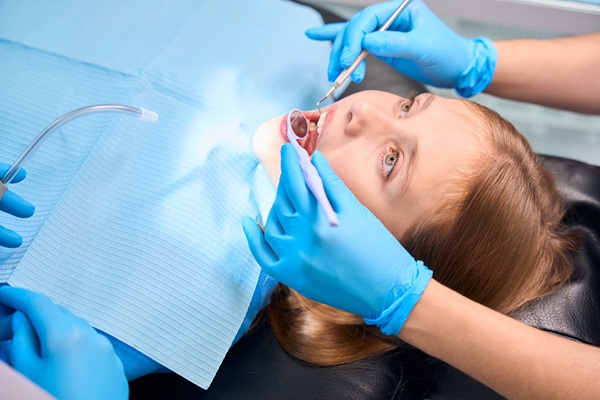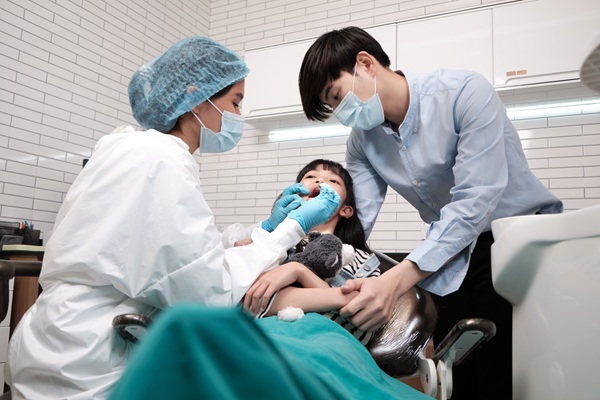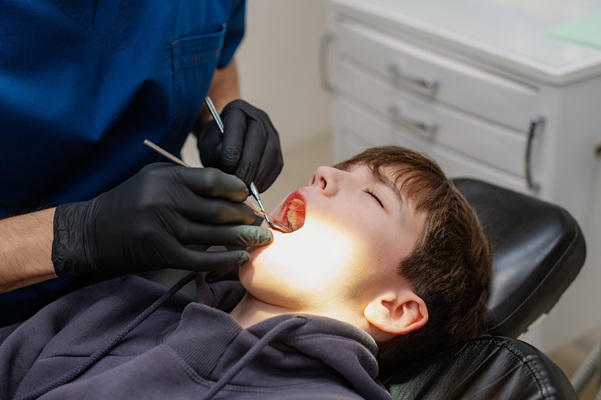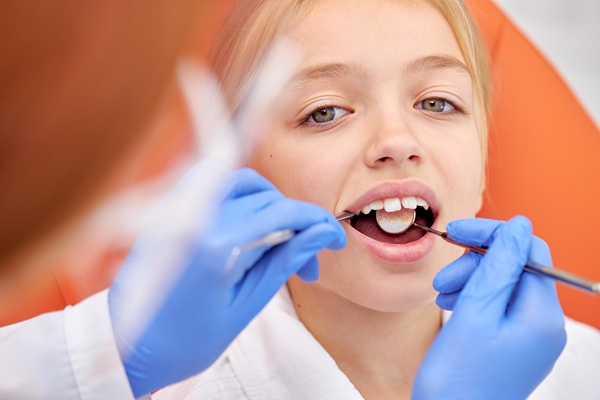Restorative DentistryAsheville, NC
Restorative dentistry covers any dental procedure performed to improve or restore a patient's oral health. Some children have a higher predisposition to tooth damage, cavities, or oral health issues than others. At Dennis R. Campbell, DDS, our pediatric dentist will evaluate the child's oral cavity and recommend the proper procedure to restore good dental health.
The type of restorative dental procedures we recommend can include repairing or replacing damaged or lost teeth. By helping to restore a child's teeth, we can help to promote the proper development of a child's teeth to prevent lasting or permanent damage.
To schedule an appointment and learn more about restorative dentistry, call us at 828-254-7291 today.
Benefits of restorative dentistry
Parents need to pay attention to any dental issue that their kids experience, even if it affects their primary teeth only. The health of the primary teeth directly affects the eruption and growth of the permanent teeth, and any decay or disease that affects the baby teeth can have devastating consequences on the diet, health, and comfort of the child.
The pediatric dentist recommends that every child visits the office for oral health evaluation at least every six months to get their teeth clean and get necessary dental treatment. Some of the benefits of restorative dental procedures include:
- Remove cavities or defects to make the teeth less vulnerable to cavities
- Halt the progression of tooth demineralization
- Restore the structural integrity of the tooth
Ahead of the Dental Procedure
Before performing any procedure, the pediatric dentist will examine the child's X-ray scans. Afterward, they will discuss the details of the procedure with the parent, including options available to keep the child at ease and comfortable throughout the treatment.
Dental care can cause fear or anxiety for children, even in the best situations, but the need for restorative dentistry can make the situation even worse. The dentist understands how hard it can be to take a child on a dental appointment for restorative procedures, so they will take every step necessary to help the child feel relaxed and leave the office excited about their oral health.
Possible Restorative Dental Procedures
Restorative dentistry for children helps to restore a tooth's health and give them a healthy and strong bite. The following are some of the procedures available:
Composite fillings
Even with good dental habits, tooth decay or cavities can occur. The dentist will detect such issues when the child comes for the checkup. For cavities, especially in primary teeth, the dentist will remove the decay. After the tooth is clean, the dentist will use composite fillings to fill the tooth using a unique bonding technique. The filling will strengthen the tooth and protect it without looking awkward or out of place.
Dental crowns
Crowns cover or protect a tooth that has suffered severe damage that needs more than a filling. Depending on the location of the tooth, the dentist may recommend different types of crowns. If a cavity is too large or a tooth has received too many fillings, a crown will provide more reliable protection for the child's teeth. Crowns are also needed to protect a tooth that has undergone root canal treatment.
Root canal treatment
Large cavities can cause nerve irritation and infection. The pediatric dentist will complete a root canal on the affected primary teeth or secondary teeth to protect the child's smile and maintain good oral health. For the treatment, the dentist will clean out the infected nerve or pulp tissue, apply for antibacterial medicine on the insides of the tooth and fill the tooth with a protective filling called gutta-percha.
Treating the nerves and pulp of the tooth saves the tooth and prevent extraction. After the tooth has undergone root canal treatment, the dentist will place a dental crown on it to protect the teeth from damage.
Tooth extraction
If the tooth cannot be saved with a root canal procedure, the dentist may recommend a tooth extraction. Depending on the child's age and the affected tooth, the pediatric might suggest using a space maintainer to preserve the position and health of the surrounding and emerging teeth.
Space maintainers hold the nearby healthy permanent teeth in place after removing a primary tooth. The dentist will connect a spacer temporarily to the adjacent adult tooth to stop it from shifting to the open gap. The spacer is taken off after the developing tooth fills the gap.
Dental sealants
It is more of a preventive treatment than restorative. Dental sealants provide extra protection against decay and prevent cavities from affecting the chewing surfaces of the tooth – premolars, and molars. If a sealant is applied to a tooth, the tiny crevices and grooves on it become smooth to make them susceptible to bacterial or plaque accumulation, which are the main causes of cavities. Dentists commonly seal permanent teeth instead of baby teeth, but proper recommendations will be made based on the child's case.
If the dentist suggests sealing the child's teeth, the process takes only some minutes and can be completed during a regular exam. The dentist will first clean the tooth before applying an etching solution to the tooth. The tooth is rinsed and dried before the sealant is applied. After the sealant hardens on the teeth, it can protect the teeth for three to five years.
Call Us Today
Sometimes, regardless of oral care and proper hygiene, tooth decay or oral issues can occur. If your child needs restorative dentistry procedures or has complaints about a tooth, visit the pediatric dentist for consultation and treatment. Dennis R. Campbell, DDS will examine the child and recommend the most appropriate options to restore the child's smile. Call us at 828-254-7291 today to schedule an appointment.
Frequently Asked Questions
How can parents help prevent cavities?
Parents should take their children on dental visits regularly, starting with the emergence of their first tooth. The dentist will also advise parents to supervise and teach their children proper oral hygiene practices. Establishing a lifetime of healthy oral habits for the child can help reduce the occurrence of cavities and other dental issues.
Can a chipped tooth be repaired with restorative dentistry?
Yes, the dentist can recommend a dental crown or bonding to repair a chipped tooth. The materials used are tooth-colored materials to keep the tooth looking natural.
What can I do if my child has tooth pain?
First, help the child rinse their mouth with saltwater. Place a cold compress on the face if there is swelling. Bring the child to the dental office as soon as possible.
What causes cavities?
Some types of bacteria live in the mouth. When these bacteria feed on the food debris or sugar left on the teeth after meals, they produce acid. These acids are plaques and eat into the tooth enamel, eventually creating the holes called cavities.
How can I protect the teeth of a child that plays sports?
If the child plays contact sports, the dentist may recommend mouthguards. For games like baseball, soccer, and other sports, parents can ask the dentist about getting a custom-fit mouthguard to protect the child's oral cavity.





